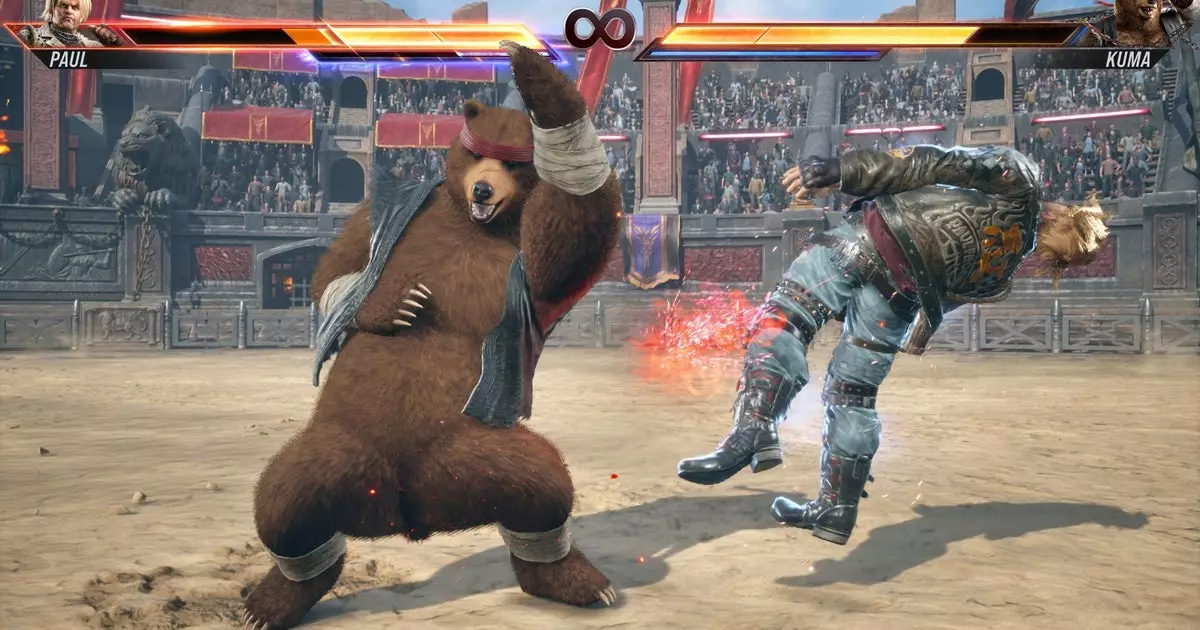In a bold move that takes the venerable Tekken franchise back to its roots, a daring modder known as KulaGGin has introduced “Good Ass Tekken,” a modification that strips away the modern frills of Tekken 8 to create an experience reminiscent of the celebrated Tekken 5 era. Aimed at purists and longtime fans, this mod seeks to redefine competitive play by focusing on the core elements that made Tekken a staple in fighting game culture. By removing advanced features such as the heat bar, rage state, armor moves, and tracking attacks, the game transforms into a streamlined version that emphasizes skill over flashy mechanics.
In essence, KulaGGin’s endeavor reveals a sentiment that resonates deeply with a section of the player base: the yearning for simpler, more authentic gameplay reminiscent of earlier Tekken installments. The elimination of the heat bar—an innovative addition designed to provide players with strategic advantages even when their opponent is on the defensive—might seem counterintuitive. However, this mod signifies a growing discontent among players who feel overwhelmed by the relentless pace and pressure exerted by the current game mechanics. The fear of losing with just one unfortunate mistake is a stark reality in fast-paced battles, often degrading the strategic enjoyment of fighting games.
A Combat Philosophy: Back to Fundamentals
KulaGGin’s alteration of gameplay mechanics advocates for the revival of classic footsie tactics, urging players to sharpen their skills in backdashing and spacing rather than relying on overpowering moves. By increasing backdash distances and making launching attacks unsafe when whiffed, the mod creates a dynamic where players have to be more mindful of their actions, promoting a chess-like approach to combat that many hardcore enthusiasts crave. This attention to foundational gameplay mechanics echoes an increasing trend in the gaming community: the desire for genuine skill-based combat rather than reliance on exploitable mechanics.
Proponents of the mod celebrate this thoughtful approach, appreciating how it challenges players to elevate their gameplay through strategic depth rather than a barrage of visual spectacles. For many, the sleek graphics and numerous combos of Tekken 8, while visually impressive, dilute the essence of competition—turning matches into more of a race to exploit overpowered mechanics than a test of skill and reflexes.
The Dial-Up of Difficulty: A Double-Edged Sword
However, this nostalgia-induced gameplay alteration is not without its detractors. Although the idea of a “no-frills” fighting game may sound appealing, it risks alienating newer players who are drawn to the flashy, high-energy components that modern titles offer. The rage state, for instance, serves a dual purpose: it not only provides a comeback mechanic, offering a lifeline during treacherous matches, but also injects an element of excitement that appeals to spectators and participants alike. Stripping such elements could lead to a less exhilarating viewer experience, potentially stifling the overall growth of the Tekken community.
Furthermore, the methodology of stripping features to appeal to a nostalgic demographic raises questions about accessibility. While seasoned players may relish the thought of honing their skills in a more ‘traditional’ environment, newcomers could be discouraged by the steep learning curve that such a gameplay style entails. In a time where gaming communities strive to be inclusive, the moderating of difficulty could keep potential players at bay—those who might otherwise embrace and enjoy the franchise’s evolving nature.
Personal Reflections: Embracing Dual Perspectives
As someone who enjoys the freeing nature of power-ups like the rage state, it’s easy to understand the allure of KulaGGin’s vision while simultaneously valuing the dynamic experience offered by the latest installments. For experienced players, the nuanced control and variety presented in modern mechanics offer profound opportunities for innovation, improvisation, and growth. Yet, recalling the simpler days of competitive Tekken gameplay begs the question: Can the franchise incorporate elements from both eras to craft a more inclusive title?
In the end, mods like “Good Ass Tekken” are invaluable as they provide players with alternatives that reflect their preferences for simplicity and strategic depth in gaming—while also prompting developers to rethink their design philosophy. Just as the balance between innovation and tradition remains elusive in various sectors of our lives, its significance in the world of esports is undeniable. As KulaGGin’s mod demonstrates, the essence of fighting games will always thrive in the delicate blend of nostalgia and evolution.


Leave a Reply